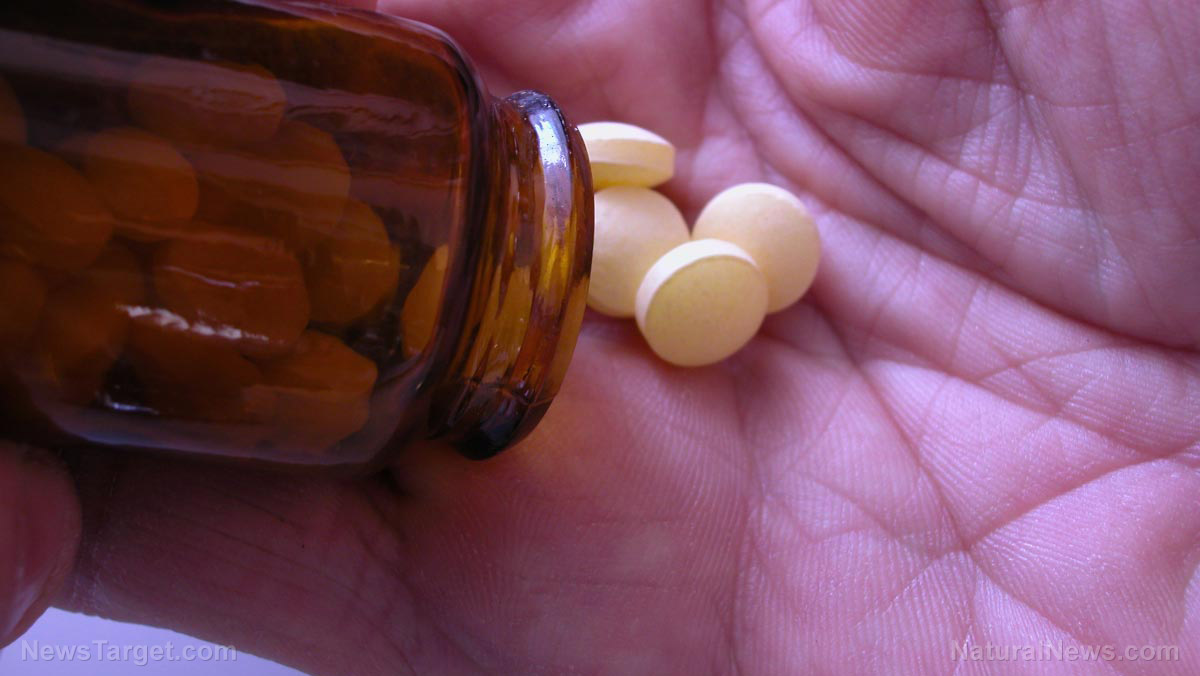Common over-the-counter ibuprofen found to be more effective against depression than dangerous antidepressant drugs
08/16/2017 / By Jhoanna Robinson

A complaint of depression to your general practitioner would likely result in you getting a prescription for an antidepressant. This doesn’t take into consideration the fact that there has been evidence that showed that around 30 to 40 percent of people with depression also had increased levels of inflammation in their brains, which inhibited the effectiveness of the mood-improving pills.
King’s College London professor of biological psychiatry Carmine Pariante presented evidence last year that measured the levels of two markers for inflammation in the blood. The review was made to determine if a depressed patient would be helped by standard antidepressants. These are also known as selective serotonin reuptake inhibitors (SSRIs); with the most common being Prozac.
“We found that above a certain level of inflammation, there was not going to be any benefit. Half of all patients with depression fail to find an effective drug with their first prescription, and a third don’t benefit from any of them,” Pariante said. (Related: Depression has more than one cause.)
The good news is, the research that Pariante recently conducted pointed to an alternative remedy. “If inflammation levels are too high, an anti-inflammatory drug may help. We are testing one commonly used with acne, an antibiotic called minocycline,” he noted.
Pariante said that if we think of depression as we think of inflammation in the body, we would better understand the condition and how to treat it. “It makes depression just a part of what is going on in the whole body. Patients seem to instinctively understand this, because they are very aware of the physical feelings that come with depression.”
“The aches and pains and the feeling of being sick and tired can be just like the flu. That’s because inflammation is a sign of increased activity by the immune system,” Pariante added.
Inflammation can also change how a depressed person can view life, with Oxford University professor of cognitive neuroscience Catheirne Harmer saying that the term for this concept is called “negative bias”, which is “a way of spotting those who will respond to medication, because an antidepressant works in patients with inflammation by making them more optimistic, an effect that happens fast.”
Why does inflammation happen to people’s brains in the first place? “Stress fires up the immune system and releases the hormone cortisol. That raises inflammation in the brain and around the body,” said Oxford University professor of psychopharmacology and Medical Research Council clinical scientist Philip Cowen.
B vitamin supplements, another answer to depression
Researchers at the College of Health and Biomedicine at Victoria University in Australia surmised that supplementation of B complex vitamins may prove to be the cure to addressing depression.
“Vitamin B deficiency (B1, B2, B6, B12) is used by clinicians to recognize and treat psychiatric disorders. It is clear that deficiency in B vitamins results in symptoms of depression, thus affecting health and well-being of individuals,” they wrote in a study that was published in the journal Maturitas.
Read up on more stories such as this one at Medicine.news.
Sources include:
Tagged Under: Antidepressants, depression, Ibuprofen, inflammation, Medicine, mental health, SSRI drugs
RECENT NEWS & ARTICLES
COPYRIGHT © 2017 BRAIN NEWS


















